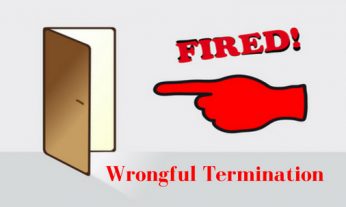 Teacher tenure is one of the most controversial issues in education today. Teacher tenure proponents claim that tenure provides educators a needed safety net. That more expensive teachers with time in the system will not be terminated in favor of cheaper, less experienced teachers. Nor will experienced teachers feel pressured to keep their opinions to themselves, fearing political or personal vendettas.
Teacher tenure is one of the most controversial issues in education today. Teacher tenure proponents claim that tenure provides educators a needed safety net. That more expensive teachers with time in the system will not be terminated in favor of cheaper, less experienced teachers. Nor will experienced teachers feel pressured to keep their opinions to themselves, fearing political or personal vendettas.
On the other hand, opponents of teacher tenure argue that ineffective teachers get locked into classroom positions that do not benefit students and schools. Regardless of where you stand on the issue, the California Supreme Court has upheld current tenure laws, refusing to hear Vergara vs. California appeal, a case that challenged teacher tenure. That being said, under what circumstances can teachers be fired? If you are a California educator who is facing dismissal, but feel it is unjustified, an experienced employment attorney may be helpful.
What is Teacher Tenure?
Tenure is essentially an unspoken, and literally unnamed in the law, policy giving professors and teachers a permanent contract. Educators prefer the term permanent status. But what does permanent mean? Well, permanent means permanent—assuming no severe misconduct or evidence of incompetence occurs, the job is guaranteed. But that caveat is an important one: Teachers may still be fired for just cause, meaning that if there is a clear reason, termination proceedings may be undertaken.
While opponents to the tenure system cite red tape and bureaucratic nightmares as impediments to ousting poorly performing teachers, the law really just requires due process. If administrators can prove that a teacher is not performing the job at acceptable levels, the tenure system requires that evidence of the shortcomings is well documented and that an impartial study of the facts of each individual case occurs.
What is Due Process With Regards to Teacher Tenure?
Due process was developed in order to protect students and schools from anything that interferes with students’ rights to a quality education. Due process exists to ensure that decisions relating to schools / teacher terminations are based on educational goals, not personal or prejudicial reasons. Every year, tenured teachers are dismissed when clear evidence makes termination defensible.
Teacher Termination Procedure
State law requires that teacher firing decisions be based upon behavior, performance, and overall fitness for the job. The process is necessarily lengthy and detailed:
- Specific examples of concerns must be documented;
- Teachers must be given written notice of the concerns and have 90 days to correct any problems;
- If issues are not resolved, written dismissal charges must be approved by the school board;
- Teachers may then request a hearing to be held within 30 days;
- The school board must serve the employee with an accusation as per the Administrative Procedure Act (APA);
- Teachers may then request a second hearing with the State Office of Administrative Hearing within 60 days;
- A three-person commission consisting of one administrative judge and one appointee from the district and one from the teacher hears the case;
- Teachers may further appeal to the state Court of Appeals.









